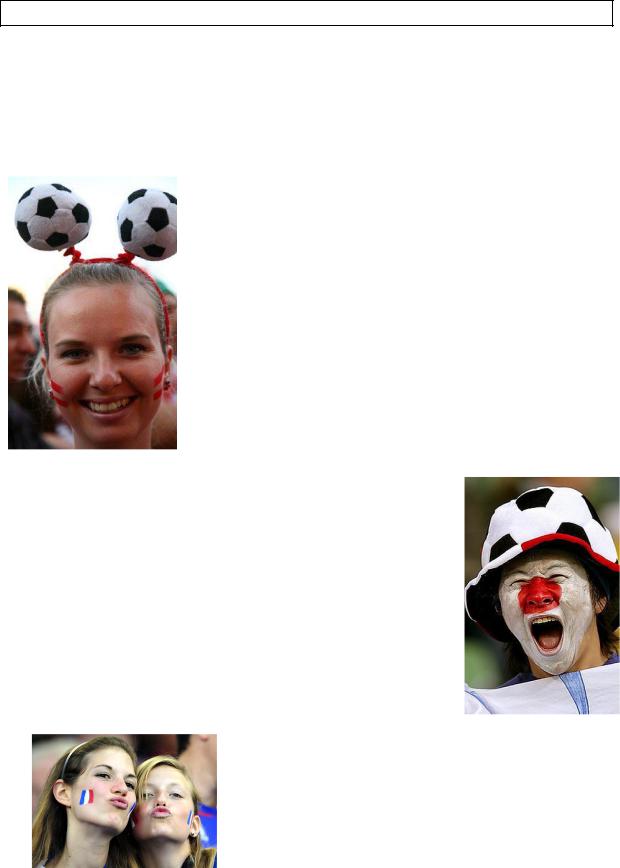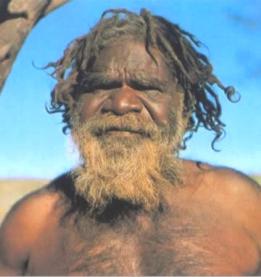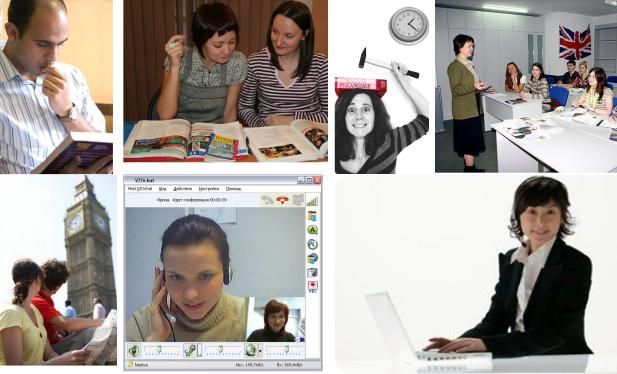
world_matters
.pdf
4. Language skills
4a Complete the text about curling with the verbs in brackets.
Curling 1___(play) on ice by two teams of four players. First, large stones 2___(push) across the ice and allowed to slide towards a circle, which 3___(call) ‘home’. After this, the players 4___(not allow) to touch the stone. They sweep the ice in front of the stone. In this way, the ice 5___(warm) and the speed and the direction of the stone 6___(change). The object of the game is to place your team’s stones in the circle closer to the middle than your opponents’ stones.
The oldest curling stone, bearing the date of 1511, 7___(find) in Scotland and in the 18th century, the first curling clubs 8___(form) there. Nowadays, the game 9___(play) in many countries, e.g. in Switzerland, where natural outdoor ice 10___(find). In Canada and the USA, curling 11___(play) since the beginning of the 19th century. Curling 12____(make) more popular by the recent Winter Olympics. It 13___(play) for the first time at Nagano in 1998 but it 14___(not watch) by big audiences.
4b Complete the sentences about Janica Kostelic, a Croatian skier.
1.Janica / born / 1982
2.She / first put on the skis at the age of three
3.She / selected for the national team / she / 16 years old
4.Janica / injured many times so far
5.She / allowed to ski in spite of her knee injuries
6.She / admired for her hard work and ambition
7.She / liked because of her sense of fun
4c Winter Olympic quiz. Use the clue to write questions using the Passive. Do you know the answers to these questions?
Example: When was curling made an Olympic event?
1.When / curling /make an Olympic event?
2.When / first Winter Olympics / organise?
3.Who /ski jumping / invent by?
4.When / the first cross country ski races / hold?
5.When / extreme skiing / invent?
6.What two sport / snowboarding / develop from?
7.When / snowboarding / make an Olympic event?
8.Where / the last Winter Olympics / organise?
9.How often / the Winter Olympics / hold?
82

5. Listening
5a Where was the last Summer Olympic Games held? Did you watch any of it? Did Russia win any medals?
5b Which three cities below have never yet hosted the Summer Olympic Games?
Amsterdam |
Athens |
Berlin |
Melbourne |
Los Angeles |
Madrid |
Osaka Mexico City |
|
Moscow |
New York |
Paris |
Seoul |
 5c In 2005, London won the competition to host the Olympic Games in 2012. Listen to four extracts from the presentation that was made by the British Olympic Committee and match them with the topics a-d. Track 17.
5c In 2005, London won the competition to host the Olympic Games in 2012. Listen to four extracts from the presentation that was made by the British Olympic Committee and match them with the topics a-d. Track 17.
a)transport
b)the sports facilities
c)accommodation for athletes
d)London’s special ambition for the Games
 5d Are these sentences true or false? Listen again and check.
5d Are these sentences true or false? Listen again and check.
1 The organisers want the Games to encourage children to play sport.
2 None of the sports venues already exists.
3 The Olympic park will be less than ten minutes from the city centre.
4 The Olympic stadium will have
18,000 seats.
5 Many venues will be a long way from the athletes’ accommodation. 6 The athletes will stay in single rooms.
7 Ten train and underground lines go to the venues.
8 Visitors to the games don’t have to pay to use the trains and buses.
 5e We can use just and only to emphasize how small something is. Listen and complete these sentences from the extracts. Is the emphasis positive or negative? Track 18.
5e We can use just and only to emphasize how small something is. Listen and complete these sentences from the extracts. Is the emphasis positive or negative? Track 18.
1 We’ll create an Olympic park which is ___ seven minutes from the center of London.
2 Half of the venues will be ___ five minutes from the athletes’ accommodation. 3 ___ ten per cent will be more than twenty minutes away.
4 Athletes will be ___ a short walk from the main stadium.
5 The Olympic park will be ___ seven minutes from central London by train.
83

6. Extra Activities
6a Read this magazine article and choose the best title.
AMen : Women - 1:0
BCompanies spend billions on World Cup ads
CAdvertisers forget female fans
DRecord numbers of women watch World Cup
6b While reading choose the best word to fill in the gaps from the list below.
This year, female football fans are everywhere. You can see them in the stadiums, you can see them at the big screen 1)____and you can probably see them in front of your own television. However, despite the recent increase in the 2)____of women watching the World Cup, the majority of the advertisements during the games are aimed at men.
This year, nearly 50 per cent of the tournament’s audience has been female. In South Korea, a female 3)____of 51 per cent watched their match against Togo. In England, 47 per cent of the audience was female during the match 4)____Sweden. ‘We’ve certainly missed an opportunity’, said an advertising executive. ‘There have been too many adverts for men and there haven’t been enough adverts for female fans’.
There have been some adverts that have been 5)____at women. However, these adverts have seen women not as fans, but as people who dislike the game. For example, one airline has been offering women-only holiday trips 6)____the World Cup.
‘The advertisers haven’t been clever enough. They’ve been too 7)____in women who hate football and they’ve forgotten about those who love the game’, said Sean Gabb, a business lecturer and author. ‘Companies have spent enough money on advertising, nearly $1 billion worldwide, but they’ve spent too much money on the male fans and not enough on the female fans’.
However, some companies think they have been clever. Adidas have said that, as this is the male World Cup, it makes 8)____to focus on advertising to men. They plan to focus on female products during next year’s women’s World Cup in China.
Other people have noted that women 9)____to be more casual watchers of TV sport than men, so it is difficult to keep their attention during the adverts.
84

However, as Sean Gabb said, ‘Perhaps this is because they don’t want to 10)____their time watching adverts for shaving products and car tyres’.
1 |
A performances |
B events |
C plays |
2 |
A minority |
B amount |
C number |
3 |
A lots |
B majority |
C most |
4 |
A against |
B opposite |
C in front of |
5 |
A aimed |
B pointed |
C intended |
6 |
A escaping |
B to escape |
C escape |
7 |
A in love |
B interested |
C fascinated |
8 |
A sense |
B meaning |
C point |
9 |
A tend |
B like |
C dream |
10 |
A spend |
B enjoy |
C waste |
6c According to the text, are these sentences true (T) or false (F)?
1 Many women have been watching football for many years.
2 Men are the target audience of advertisers during the World Cup.
3 More than half the English audience was female during the Sweden game.
4 The advertising executive thinks there should be more adverts aimed at women. 5 An airline offered special trips to the World Cup for women.
6 Companies did not spend a lot of money on advertising during this World Cup. 7 Adidas believes that it didn’t make a mistake with its advertising.
8 Women often stop watching during the advertisements.
6d Discuss these questions with a partner.
Do you think that the advertisers missed an opportunity or do you agree with Adidas?
Do you think that women are casual watchers of sport or do you agree with Sean Gabb?
Who do you think watches more sport, men or women? Why?
7. Writing: Writing a biography of a famous person
7a Read the article about Maria Sharapova and complete these notes for a mini-biography.
Maria Sharapova Born in ___ (date), in ___(country)
Age when she started tennis: ___ years old
Age nine: moved to ___
Off-court interests: 1_____2_____3_____
Championships: _____
85
At the age of seventeen, Maria Sharapova won the Wimbledon tennis championship. She was the third youngest champion in Born in 1987 in a small Siberian town, Maria started hitting tennis balls at the age of four. Her first tennis teacher was her father, Yuri Sharapov. When Maria was nine, she and her father moved to America. She went to a special tennis school in Florida, where she practised every
day.
Maria’s mother had to stay at home in Russia. Maria didn’t see her for two years. She missed her mother and her family. But now this tall, good-looking young woman is the Number 2 player in the world.
Playing tennis is not Maria’s only interest. She does not go to high school but she studies all her school subjects through an Internet school.
Wimbledon’s 118-year history. This success quickly made her one of the world’s best-known sports celebrities.
She enjoys reading. The Sherlock Holmes stories are among her favourite books. Her other off-court interests are fashion, singing, dancing and movies. In 2005, Maria designed her tennis dress for the championships, and she produced a new perfume.
However, Maria’s main love is still tennis. She often plays charity matches to raise money for people in need, and she practices hard to be a champion.
‘Everyone’s trying to beat the World’s Number 2 player’, she says. ‘It’s absolutely normal. But I want to beat them as well. I love the competition.’
7b Choose a famous person and write his/her biography (160-200 words). Include the following:
When / where he/ she was born
Why he/she became famous
Family, interests, hobbies
86

Unit 8
Languages and Communication
In this module you will:
Read about fate of languages
Talk about your native language, ways of learning languages
Test your knowledge about world languages
Practise using modals (can, be able to) and their equivalents
Listen to an interview
Write a letter to a friend
Learn about nonverbal communiaction
Useful vocabulary:
Nouns |
community, effect on smth, texting, posture, bow, slouching, |
|
insult, rudeness |
Verbs |
to disappear, to save, to survive, to destroy, to care, to say, to talk, |
|
to speak, to tell, to study, to revise, to practise, to improve, to |
|
socialize, to communicate, to prevent from, to decipher, to affect, |
|
to express oneself, to quaver, to facilitate |
Adjectives |
rare, unique, old-fashioned, close to, offensive, |
Phrases and |
native speakers, spoken language, first language, official |
collocations |
language, to have a proper conversation, correct English, means of |
|
communication, facial expression, to transmit information, |
|
nonverbal communication, |
Linkers |
because of, all in all, according to, reason why |
87

1. Lead-in
1a Do you know what languages the people in these countries speak? Choose from the table on the right.
1 official |
2 or more official |
language |
languages |
France→ |
Canada→ |
China→ |
Switzerland→ |
Portugal→ |
Belgium→ |
Spain→ |
India→ |
Australia→ |
Belarus→ |
French Chinese Portuguese
Spanish Hindi English
Italian Russian German
Flemish(Dutch) Hungarian
Belarussian Japanese Ukrainian
Bengali Arabic
1b How much do you know about the world’s major languages? Try the quiz below.
Test your knowledge
1.Approximately how many languages are there in the world? a 6,500 b 16,500 c 1,500
2.Order the world’s top 5 languages according to the number of native speakers.
|
|
Chinese |
English |
Spanish |
Japanese |
Bengali |
|
|
Russian |
Hindi |
Arabic |
Portuguese |
German |
3. |
How many people speak English as a first, second or third language? |
|||||
|
a 0.5 billion b 2 billion |
c 1.5 billion |
|
|||
4. |
How much of the world’s e-mail is written in English? |
|
||||
|
a 60% |
b 70% |
c 80% |
|
|
|
5. |
How many Languages disappear every year? |
|
||||
|
a 5 b 20 |
c 15 |
|
|
|
|
2. Reading
Pre-reading activities
2a Look at the picture in the text below and guess who the person might be. Look at the key words below and guess the topic of the text.
lonely(adj) die (v) language (n) disappear (v) speaker (n) save (v) rare (adj)
While-reading activities
2b Read the article and match the topic a-f with paragraphs 1-6.
a |
What communities can do |
|
. |
|
|
|
|
|
|
|
|
|
b |
The number of languages in danger |
. |
|
|
|
|||||||
c |
The last speaker of his language |
|
|
|
. |
|
|
|
|
|
|
|
d |
The most important reason why |
languages are dying |
. |
|||||||||
e |
Languages and natural disasters |
|
|
. |
|
|
|
|
||||
f |
What happens when languages |
die |
|
. |
|
|
|
|||||
88

1 Maluerindi (a name which means 'Running Water') is lonely because he has nobody to talk to, but his loneliness won't change - he is the last person in the world who can speak his Aboriginal language. 'It's sad,' he says, 'but there's nothing we can do about it now.'
2 Experts who study languages say that there are 51 other languages with just one speaker left - 28 of them in Australia. These languages are so close to dying that nobody can save them. The experts tell us that out of the world's 6,000 languages, 3,000 will disappear in the next 100 years.
3 There are many reasons why languages die. Sometimes natural disasters such as earthquakes, floods or hurricanes suddenly destroy small groups of people who live in far away places. Sometimes the weather changes and there isn't enough food, and sometimes strangers bring new diseases.
4 But disasters like these are not the biggest danger, and do not tell us why languages are disappearing faster than ever before. The real problem comes from the big world languages such as English, Spanish, Portuguese and French. Today, mainly because of America, English is the first world language, and it is very hard for smaller languages to survive.
5 There are things that small communities can do to save a language, but they need time and money. First, people need to record the language and write it down. Then they need to train teachers, and write grammar books, dictionaries and books for schools.
6 We should care about languages that are in danger just as we should care about rare plants and animals. When a language dies it is not like when a civilization such as the ancient Greeks or Egyptians die. They leave behind buildings like the pyramids in Egypt and Parthenon in Greece - there is always something to show that they were there. But a spoken language leaves nothing behind - when it dies, there is only silence.
Post-reading activities
2c Read the article again and answer these questions using your own words.
1What does Maluerindi think we can do about his loneliness?
2What is going to happen in the next 100 years?
3Why do languages die?
4What can people do to save a language?
5Why should we care when languages die?
89

3. Language skills
|
|
Vocabulary |
|
|
||||
3a Find these verbs in the article |
3 |
‘It’s sad,’ he |
|
, ‘but there’s |
||||
and match them to their meanings |
nothing we can |
do about it |
now.’ |
|||||
in this context. |
4 |
The experts |
|
us that out of |
||||
1 |
change |
damage something badly |
the world’s 6,000 languages, 3,000 will |
|||||
2 |
disappear |
stop existing |
disappear in the next 100 years. |
|||||
3 |
destroy |
live after a difficult event |
|
Which word means to know a |
||||
4 |
survive |
stop something dying |
|
language? |
|
|
||
5 |
save |
be interested in something |
|
Which word means to have a |
||||
6 |
care |
become different |
|
conversation with? |
||||
Choose three of the verbs and write |
|
Which word means to give |
||||||
|
information to someone? |
|||||||
three sentences about the problem |
|
Which word is used to describe |
||||||
of dying languages. |
|
someone’s actual words? |
||||||
3b Complete these sentences with the correct form of say, talk, speak or tell.
1 |
He is lonely because he has nobody |
|||
to |
|
to. |
|
|
2 |
He is the last and only person in |
|||
Australia who can |
his |
|||
Aboriginal language. |
|
|
||
3c Fill in the missing words.
Verbs |
Nouns |
study→ |
student |
revise→ |
|
practise→ |
←repetition |
|
|
|
←memory |
|
←translation |
3d Complete the following sentences. Use the words in the box.
1 |
|
|
|
|
|
2 |
|
|
|
|
|
|
3 |
|
|
|
|
|
||
‘For me, learning English |
In general, I want to: |
In particular, I need |
||||||||||||||||||
is |
|
|
.’ |
|
|
|
|
|
|
|
|
|
English for: |
|||||||
|
|
|
|
|
|
|
|
|
|
|
|
|
|
|
|
|
|
|
|
|
|
|
|
|
|
|
|
learn |
write |
read |
|
|
|
taking writing giving |
|||||||
|
|
a pleasure |
a |
|
|
|
||||||||||||||
|
|
|
improve feel |
make |
|
|
|
|
socialising travelling |
|
||||||||||
|
|
nightmare |
an |
|
|
|
|
|
|
|||||||||||
|
|
a |
|
more confident |
g |
|
|
on business and |
||||||||||||
|
|
opportunity |
a pain |
|
|
|||||||||||||||
|
|
|
|
|
|
|
|
|
|
|
|
|
|
|
|
|
||||
|
|
when I speak. |
|
|
holidays. |
|||||||||||||||
|
|
an investment |
a |
|
|
|||||||||||||||
|
|
b |
|
|
my |
listening |
h |
|
|
e-mails, letters and |
||||||||||
|
necessity |
an effort |
|
|
|
|
||||||||||||||
|
|
|
|
|
||||||||||||||||
|
a problem |
a hobby |
skills. |
|
|
|
|
|
faxes. |
|||||||||||
|
|
|
|
|
|
c |
|
|
lots of new |
i |
|
|
with friends and |
|||||||
|
|
|
|
|
|
|||||||||||||||
|
|
|
|
|
|
|
vocabulary. |
|
|
|
|
colleagues. |
|
|
||||||
|
|
|
|
|
|
d |
fewer |
grammar |
j |
|
|
|
part in |
|||||||
|
|
|
|
|
|
|
mistakes. |
|
|
|
|
|
|
conferences. |
|
|||||
90

e |
|
|
|
better, clearer |
k |
|
short |
|
English. |
|
|
presentations. |
|||
f |
|
|
without using a |
|
|
|
|
|
dictionary |
so much. |
|
|
|
||
3e These pictures show different ways of learning a language. In pairs discuss what they show.
decide together which ways are the most helpful for learning a language
say which activities you do, or would like to do
ask about your partner’s experience
discuss your reasons for learning a language
3f Look at two columns below. In which column is it possible to use can or be able to after the words? Finish the sentences using your own ideas about learning languages.
|
My brother |
_____________. |
|
I want to |
|
_______________. |
||||
|
I |
_____________. |
|
|
|
|
|
. |
||
|
|
One day I will |
_______________ |
|||||||
|
A lot of people |
_____________. |
|
He might |
|
_______________. |
||||
|
Not many English people |
__. |
|
|
|
|
|
|||
|
I’d like to |
|
_______________. |
|||||||
|
|
|
|
|
|
|
|
|
|
|
91
